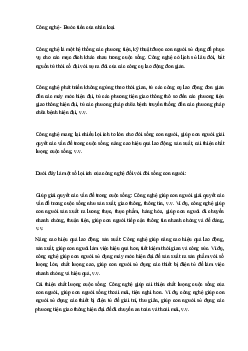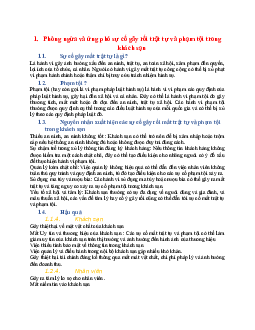
Chapter 15
THE HISTORICAL MEANING
OF
THE CRISIS
IN
PSYCHOLOGY:
A METHODOLOGICAL INVESTIGATION*,l
The stone which the builders rejected
is
become the head stone
of
the comer
[1]
1
Lately more and more voices are heard proclaiming that the problem
of
gen-
eral psychology
is
a problem
of
the first order. What is most remarkable
is
that
this opinion does not come from philosophers who have made generalization their
professional habit, nor even from theoretical psychologists, but from the psycho-
logical practitioners who elaborate the special areas of applied psychology: psychia-
trists and industrial psychologists
[2],
the representatives
of
the most exact and
concrete part
of
our science. The various psychological disciplines have obviously
reached a turning point in the development
of
their investigations, the gathering
of
factual material, the systematization of knowledge, and the statement
of
basic
positions and
laws.
Further advance along a straight line, the simple continuation
of
the same work, the gradual accumulation
of
material, are proving fruitless
or
even impossible.
In
order to
go
further
we
must choose a path.
Out
of
such a methodological crisis, from the conscious need for guidance in
different disciplines, from the necessity-on a certain level of
knowledge-to
criti-
cally coordinate heterogeneous data, to order uncoordinated
laws
into a system, to
interpret and verify the results, to cleanse the methods and basic concepts, to create
the fundamental principles, in a word, to pull the beginnings and ends
of
our knowl-
edge together, out of all this, a general science
is
born.
This
is
why the concept of a general psychology does not coincide with the
concept
of
the basic theoretical psychology that
is
central to a number
of
different
special disciplines. The latter, in essence the psychology
of
the adult normal person,
should be considered one
of
the special disciplines along with zoopsychology and
psychopathology. That it has
so
far played and
in
some measure still plays the role
of
a generalizing factor, which to a certain extent forms the structure and system
of the special disciplines, furnishes their main concepts, and brings them into line
with. their own structure,
is
explained
by
the historical development
of
the science,
rather than by logical necessity. This
is
the
way
things have been and to some extent
·Not
previously published. Based on a manuscript found
in
Vygotsky's private archives.
233
R. W. Rieber et al. (ed .), The Collected Works of L. S. Vygotsky
© Plenum Press, New York 1997
s
Downloaded by Di?p ??ng Ng?c (tanphatthpt@gmail.com)
lOMoARcPSD|35973522

234
Chapter
15
still are,
but
they should not and
will
not remain this way since this situation does
not follow from the very nature of the science, but
is
determined
by
external, ex-
traneous circumstances. As soon
as
these conditions change, the psychology of the
normal person will lose its leading role.
To
an extent
we
are already beginning to
see this happen. In the psychological systems that cultivate the concept of the un-
conscious, the role of such a leading discipline, the basic concepts of which serve
as
the starting points for the related sciences,
is
played
by
psychopathology. These
are, for example, the systems of Freud, Adler,2 and Kretschmer.
In the latter, this leading role of psychopathology
is
no longer connected with
the central concept of the unconscious,
as
in
Freud and Adler, i.e., not with the
actual priority of the given discipline
in
the elaboration of the basic idea,
but
with
a fundamental methodological view according to which the essence and nature of
the phenomena studied by psychology can be revealed in their purest form in the
extreme, pathological forms.
We
should, consequently, proceed from pathology to
the norm and explain and understand the normal person from pathology, and not
the other way around, as has been done until
now.
The key to psychology
is
in
pathology, not only because it discovered and studied the root of the mind earlier
than other branches, but because this
is
the internal nature of things, and the nature
of the scientific knowledge of these things
is
conditioned
by
it. Whereas for tradi-
tional psychology every psychopath
as
a subject for study
is
more or
less-to
a
different
degree-a
normal person and must be defined in relation to the latter,
for the new systems each normal person
is
more or less insane and must be
psy-
chologically understood precisely
as
a variant of some pathological type.
To
put it
in more straightforward terms, in certain systems the normal person
is
considered
as
a type and the pathological personality
as
a variety or variant of this main type;
in others, on the contrary, the pathological phenomenon
is
taken
as
a type and the
normal
as
one of its varieties. And who can predict how the future general
psy-
chology
will
decide this debate?
On the basis of such dual motives (based half on facts, half on principle) still
other systems assign the leading role to zoopsychology.
Of
this kind are, for exam-
ple, the majority
of
the American courses
in
the psychology
of
behavior and the
Russian courses in reflexology, which develop their whole system from the concept
of the conditional reflex and organize
all
their material around
it.
A number of
authors propose that animal psychology, apart from being given the actual priority
in the elaboration of the basic concepts of behavior, should become the general
discipline with which the other disciplines should be correlated. As the logical be-
ginning of a science of behavior, the starting point for every genetic examination
and explanation of the mind, and a purely biological science, it
is
precisely this
science which
is
expected to elaborate the fundamental concepts of the science and
to supply them to kindred disciplines.
This, for example,
is
the view of
Pavlov.
What psychologists do can in his opin-
ion have no influence upon animal psychology, but what zoopsychologists do de-
termines the work of psychologists
in
a very essential
way.
The latter build the
superstructure, but the former
lay
the foundation [Pavlov, 1928/1963,
p.
113]. And
indeed, the source from which
we
derive all our basic categories for the investigation
and description of behavior, the standard
we
use to verify our results, the model
according to which
we
align our methods,
is
zoopsychology.
Here again the matter has taken a course opposed to that of traditional psy-
chology. There the starting point was man; one proceeded from man
in
order to
get an idea
of
the mind
of
the animal. One interpreted the manifestations of its
soul
by
analogy with ourselves.
In
so doing, the matter was
by
no means always
reduced to a crude anthropomorphism. Serious methodological grounds often dic-
Downloaded by Di?p ??ng Ng?c (tanphatthpt@gmail.com)
lOMoARcPSD|35973522
Bấm Tải xuống để xem toàn bộ.
Preview text:
lOMoARcPSD|35973522
R. W. Rieber et al. (eds.), The Collected Works of L. S. Vygotsky
© Plenum Press, New York 1997
Downloaded by Di?p ??ng Ng?c (tanphatthpt@gmail.com) lOMoARcPSD|35973522
Downloaded by Di?p ??ng Ng?c (tanphatthpt@gmail.com)


